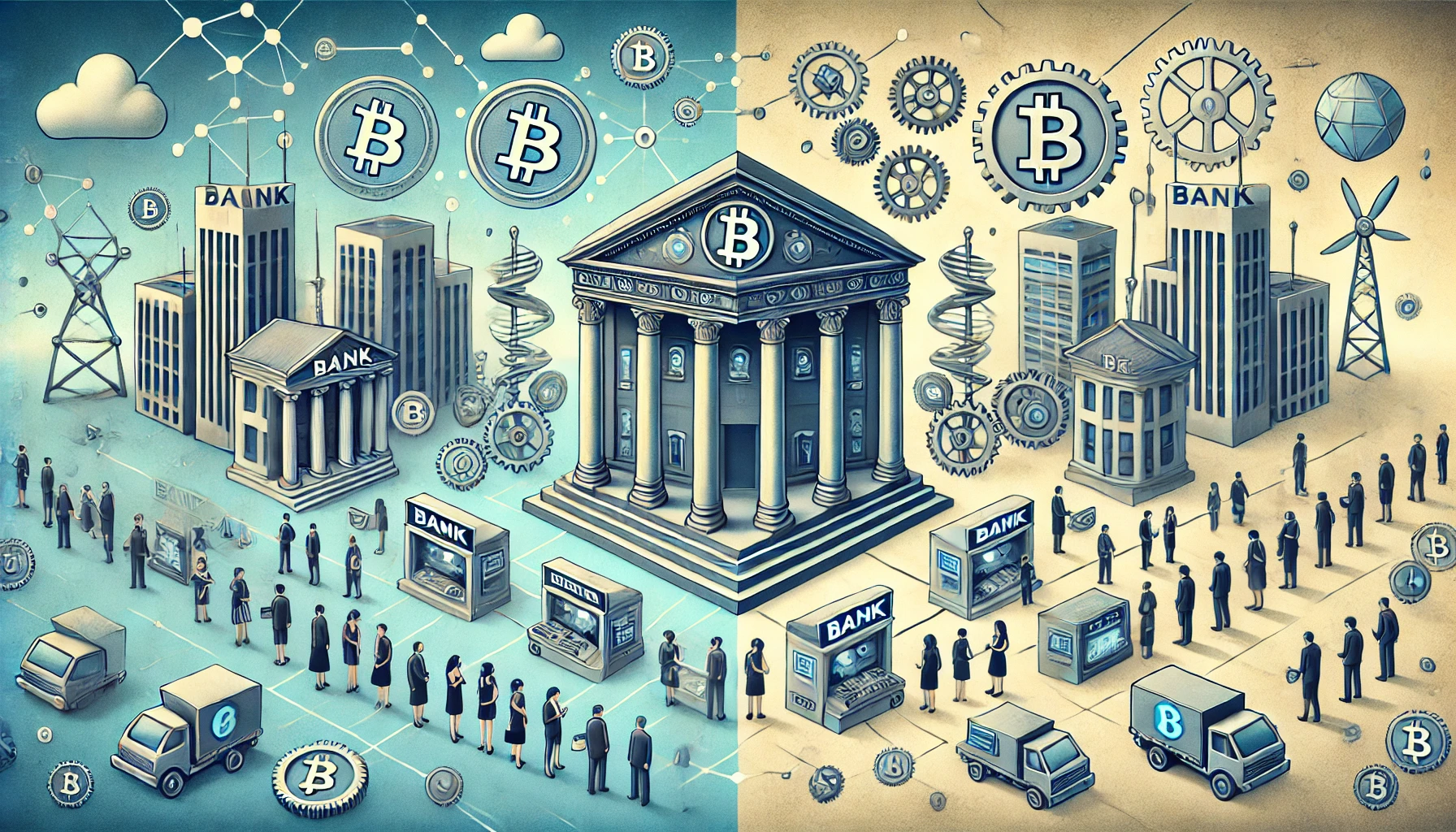DeFi vs. Traditional Banking: Will Decentralized Finance Replace Centralized Systems?

DeFi: A Revolution in Finance or Just a Trend?
You’ve probably heard the term 'DeFi' thrown around a lot lately, but what exactly is it? Decentralized Finance, or DeFi, is the latest buzzword in the finance world, and it’s shaking up traditional banking like a dog with a new chew toy. DeFi promises to eliminate intermediaries like banks, giving users direct access to financial services such as lending, borrowing, and even earning interest. In short, it’s finance without the middleman—and who doesn’t love cutting out the middleman?
How Does DeFi Work, and Why Should You Care?
Think of DeFi as the DIY version of banking. Instead of relying on centralized institutions (like banks), DeFi uses blockchain technology and smart contracts to let you interact directly with other users. Want to take out a loan? In the DeFi world, you don't need a bank. Instead, you can borrow directly from a decentralized platform using your crypto assets as collateral. It’s like a trust fall exercise, but instead of people catching you, it’s code. What’s even cooler is that DeFi operates 24/7, so you don’t have to wait for banking hours or deal with bank holidays.
The Rise of DeFi: Disrupting the Traditional Banking Model
Traditional banks have long held a monopoly on financial services, but DeFi is offering a new model that doesn’t rely on these centralized systems. Platforms like Aave, Compound, and Uniswap are already providing decentralized alternatives to banking services. These platforms enable peer-to-peer transactions without the need for credit checks, high fees, or approval processes. In fact, DeFi markets exploded in 2021, hitting a total value locked (TVL) of over $80 billion at their peak. And no, that’s not Monopoly money.
The Challenges Facing DeFi and Traditional Banks
Of course, it’s not all sunshine and blockchain rainbows. DeFi still faces significant challenges, including regulatory scrutiny, security risks, and the complexity of use. While traditional banks may seem like dinosaurs, they do offer stability, insurance, and the ability to call someone if your money vanishes into thin air. For DeFi to truly replace traditional banking, it will need to address these concerns and make itself more accessible to the average user—who, let’s face it, probably doesn't want to learn how to manage private keys and gas fees.
Will DeFi Replace Traditional Banking?
So, will DeFi really replace traditional banking, or is it just a passing fad? While DeFi offers some incredible benefits—like greater financial inclusion, lower fees, and the ability to bypass intermediaries—it’s still in its infancy. Traditional banks, with their established infrastructure and trust, aren’t going away anytime soon. What’s more likely is a hybrid future, where both DeFi and traditional banking coexist. Banks are already exploring blockchain technology to enhance their services, so it’s not an 'either-or' situation—it’s more of a 'both-and' scenario.
Conclusion: The Future of Finance
DeFi is certainly shaking up the financial world, but whether it will replace traditional banking is still up for debate. It’s exciting to think about a future where we control our own finances without relying on centralized systems, but we also can’t ignore the safety nets that traditional banks provide. The question is: Are you ready to trust code over a bank teller, or will you stick with the comfort of a savings account? Share your thoughts—what’s your take on the future of finance?



